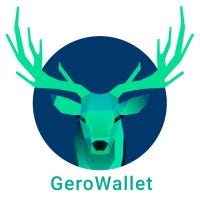CNFTs are art items (or unique tokens) living on the Cardano blockchain.
But first, have you heard about Cardano? Cardano is my favourite blockchain because of its slow and robust approach to development that leads to very few hacks (none?).
It’s a safe haven when some projects are simply losing 99% of their value because of technical issues (see the drama with Luna collapse last week).
Recently, Cardano has been growing at a tremendous speed embracing the entire spectrum of what a blockchain can do from smart contracts to token swaps.
In this article, I focus on CNFTs, explaining what they are, how to buy them, how to hold them and showing an example of purchase in the end.
1. What are CNFTs?
CNFTs are Cardano-based NFTs: it stands for “Cardano Non-Fungible Tokens”. They are unique pieces of art or token that live in a wallet and are your property. NFTs use cryptographic functions to make an asset or digital object unique. Most NFTs are on the Ethereum blockchain and require special token standards like ERC-721 and are built using a smart contract.
The Cardano NFTs are different. First because they live on the Cardano blockchain but not only.
It’s also because they are treated like any other tokens on the Cardano blockchain (unlike ERC-721 tokens on Ethereum). It makes them more robust and also it’s more natural and simpler to integrate them to Dapps.
CNFTs, like regular NFTs on other blockchains, are organised in collections that you can find on various websites that I will detail in the next section.
2. Where to buy CNFTs?
Here is a list of websites to buy CNFTs:





3. What Wallets Can I Use To Store My CNFTs?
You can use a variety of wallets to buy and store your CNFTs

Nami Wallet is a browser extension wallet. Can be used on Chrome, Edge, Brave browsers.
You can manage all Cardano tokens, native assets and NFTs and create multiple accounts.

CCvault is a web wallet with the browser extension, “built by community members for the whole Cardano community”.
You are able to manage ADA, connect it to a hardware wallet, Ledger Nano X/S. You can manage all Cardano tokens, native assets and NFTs.


GeroWallet is a browser extension wallet you can use to manage ADA, but also all Cardano tokens: (native assets, fungible tokens) and Cardano NFTs. You can stake ADA by using the search box to find a suitable stake pool.

Guarda is a non-custodial multi-platform wallet you can use to store, receive and send ADA and 40+ other cryptocurrencies.
4. PAVIA: My First CNFT Purchase
I thought it would be interesting to share my experience with CNFTs. I’ve recently decided to invest in PAVIA, a metaverse project on Cardano with digital lands on sale. If you want to know more about it, you should read my article explaining the details of the PAVIA project. So, after visiting the JPEGStore website, I went on the PAVIA collection page:

After setting up my Nami Wallet, I’ve picked one of the cheapest pieces of land close to the centre of the map (notice the double digits x and y coordinates), clicked “buy” and it’s now mine:

And that’s it!
It’s now visible in my wallet:

Thanks for reading.
n.b: this is not financial advice
